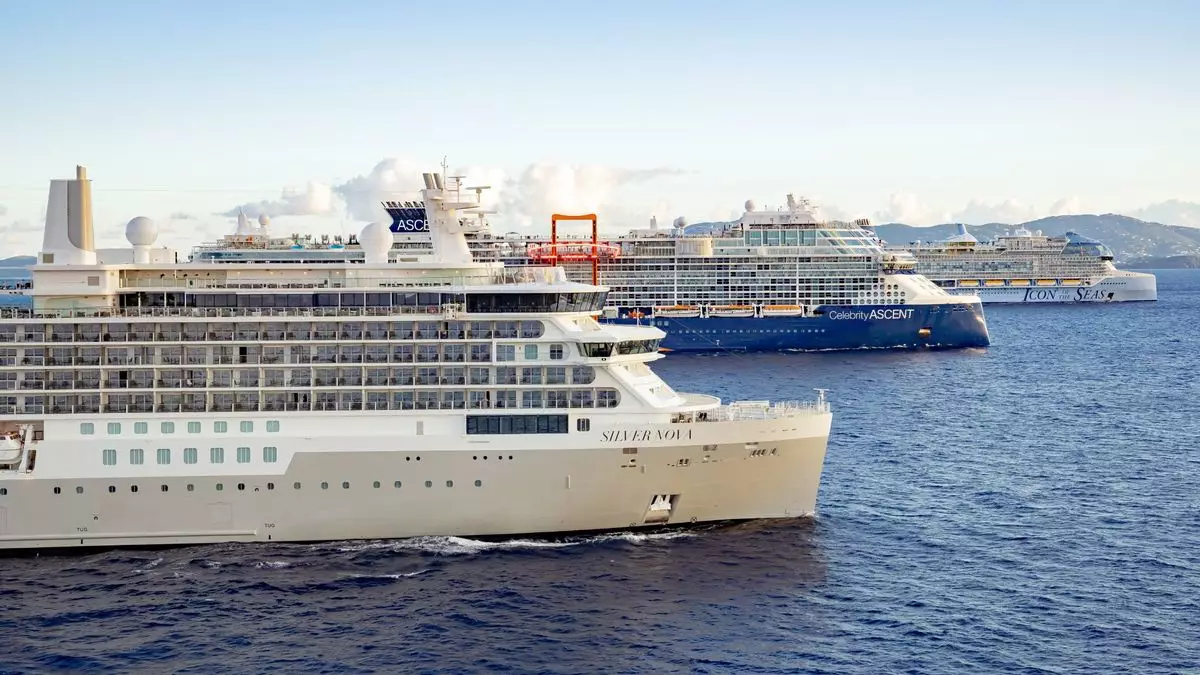In today’s cruise industry, loyalty status plays a significant role in shaping consumer behavior. Kelly Brewer, the owner of a Cruise Planners franchise, highlighted how difficult it is to persuade clients to switch cruise lines once they have achieved loyalty status with a specific brand. This phenomenon is not unique to Brewer’s clients, as many cruise passengers proudly display their status levels as a badge of honor.
Loyalty programs in the cruise industry have evolved over the years, with a focus on increasing customer lifetime value. Jeff Zotara, the chief marketing officer of Arrivia, emphasized that loyalty program development is currently at an all-time high as businesses shift their focus from customer acquisition to customer retention. This shift is driven by the desire to create longer lifetime value for each customer.
Cruise lines offer a variety of perks as part of their loyalty programs, ranging from free WiFi and complimentary drinks to priority boarding and exclusive experiences. The perks increase in value as customers move up the loyalty tiers, providing an incentive for passengers to remain loyal to a specific cruise line. Different cruise lines have varying criteria for awarding loyalty status, such as the number of cruises taken or points accumulated through purchases.
Some cruise lines have introduced status-matching programs to recognize loyal customers, even if their loyalty lies with other brands. For example, Royal Caribbean Group launched a loyalty status match program that transfers a guest’s highest status tier across its sister brands, encouraging customers to explore different products within the same family of cruise lines. This innovative approach aims to keep cruisers within the company’s portfolio of brands.
While some cruise lines do not offer status matching within their sister brands, they recognize loyalty points earned through partnerships with other companies. For instance, Regent Seven Seas Cruises collaborates with GHA Discovery, a loyalty program that includes hundreds of hotels, to offer additional benefits to its guests. Similarly, MSC Cruises matches the status of guests from other cruise lines to unlock perks like onboard credit and priority embarkation.
Virgin Voyages, a newcomer to the cruise industry, focused on raising brand awareness by offering status matches not only with other cruise lines but also with companies in other travel sectors, such as airlines and hotels. This strategy proved successful in attracting customers who are heavily statused elsewhere. By introducing their product to a broader audience of travelers, Virgin Voyages aims to establish itself as a preferred choice for cruise enthusiasts.
As the cruise industry continues to evolve, loyalty programs will play a crucial role in shaping customer retention and brand loyalty. With an emphasis on enhancing the customer experience and creating long-term value, cruise lines will innovate their loyalty programs to meet the changing needs and preferences of passengers. By offering unique perks, fostering partnerships, and embracing new trends, cruise loyalty programs will remain a key differentiator in a competitive market.

